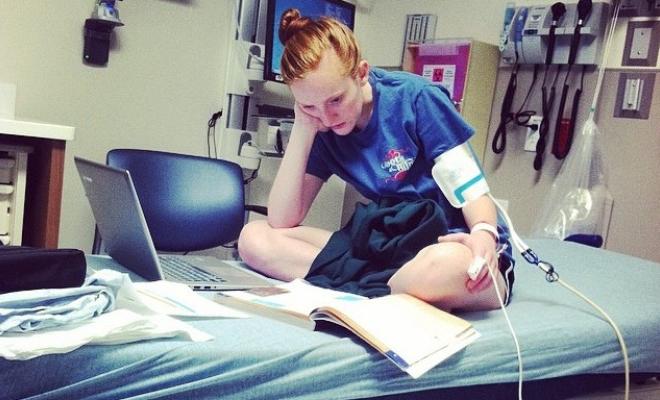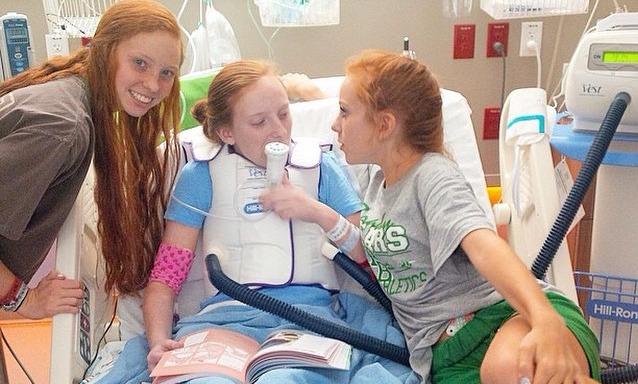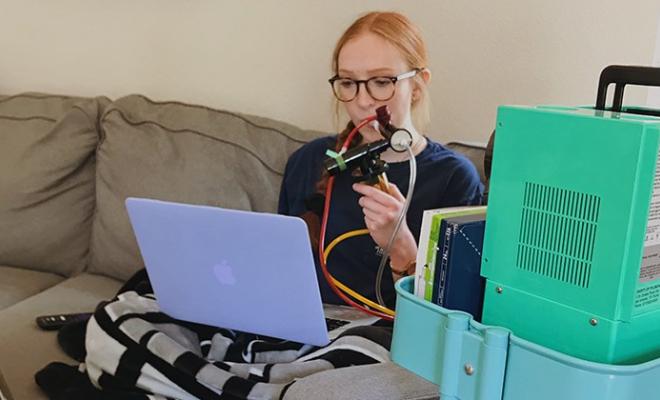Childhood memories can often resemble a calendar filled with birthdays and holidays. Growing up with cystic fibrosis makes childhood look more like a timeline that is marked by doctor visits and hospital stays. This past Labor Day, Betsy asked me if I remembered Labor Day last year. I didn't. She said, “How could you forget? I was admitted to the hospital.”
We've met Santa in the hospital, as well as some of our favorite San Antonio Spurs spreading holiday cheer. We've spent Valentine's Day in the hospital decorating cookies … and the list goes on.
Throughout these years of shifting schedules, one constant remains: the uncertainty of when the next hospital stay will be. This is taxing on people with CF and their families. CF kiddos miss a lot of school sometimes. They just do. Finding the best way to manage these times with the school can often be tricky.
I've found that Individualized Education Plans (IEPs) can help, but the meat of making things work for everyone is communication and education. Educators who understand CF will make the day to day, and lengthy hospital stays, easier for their students.
This was always pretty manageable in elementary school. Middle school, however, presented new challenges. As the work load increased, I found Betsy exhausting herself trying to catch-up on work that seemed almost silly to me. Betsy was also missing more than just classes and schoolwork. She wasn't eating lunch with her friends, walking in the halls between classes and catching up on the latest gossip (no, I'm not the mom that thinks my girls are above this teenage tradition). But on the flip side, her time in the hospital offers experiences that most kids don't get (or want). Betsy communicates with more adults than most adults do. And not just any adults: clinicians, researchers and medical students, to name a few.
By the time high school rolled around, I had (well, I thought I had) become pretty well-versed with the routine. Except for the part where school was truly real and serious now. We were not coloring and tracing anymore. Not even close. So when a hospitalization was needed within weeks of Betsy starting school, I was a bit lost.
In true Betsy fashion, she managed this with no prompting. Betsy emailed each of her teachers individually. She let them know that she was in the hospital and expected a two-week stay. Any homework could be emailed to her or sent with her sister. She made sure there was a tutor on staff at the hospital. This tutor was certified in all classes, including five languages up to grade 12. By the time I contacted all of her teachers, it was already done. All those years of my meeting with teachers and fielding emails and phone calls to educate them about Betsy's needs and diagnosis had paid off in an unexpected way. She had simply handled it on her own.
At the start of this year (Betsy's sophomore year), we met with her counselors and teachers to discuss her IEP and workload. After fielding a handful of questions, the teachers all agreed that, during extended absences or hospitalizations, they would not hold Betsy accountable to the “fluff” work that other students are given to keep them on task. She will need to communicate with them on her own, arrange meetings upon her return to school and turn in the mandatory work. But as long as she can demonstrate the concepts that were covered during her absence and pass the test, the fluff work will not be an added burden for her. We call that a win.







